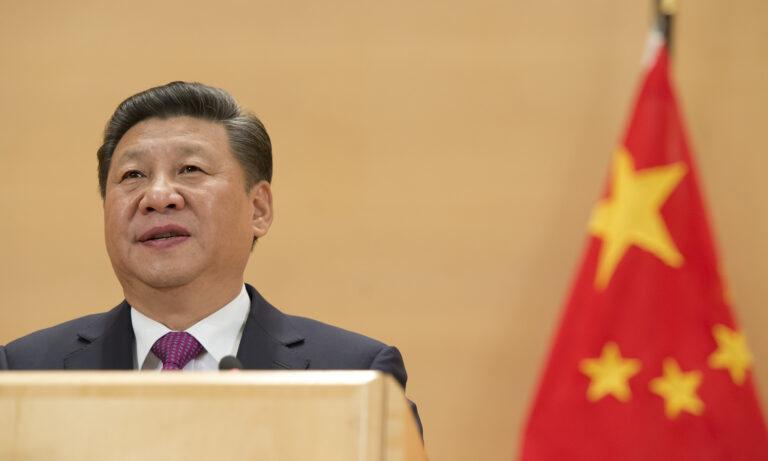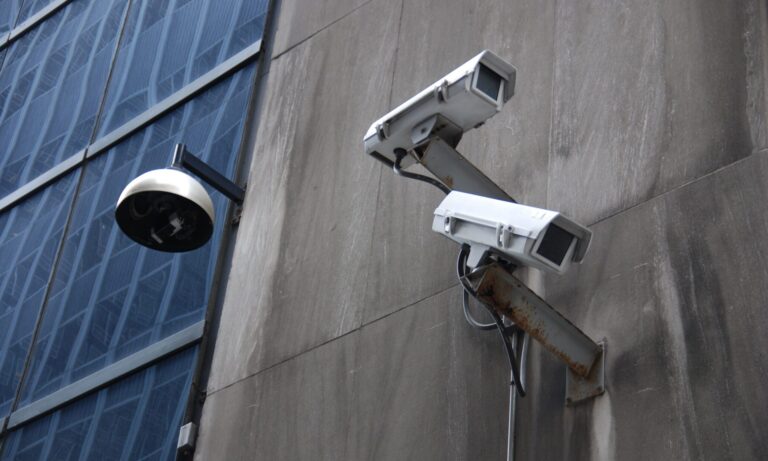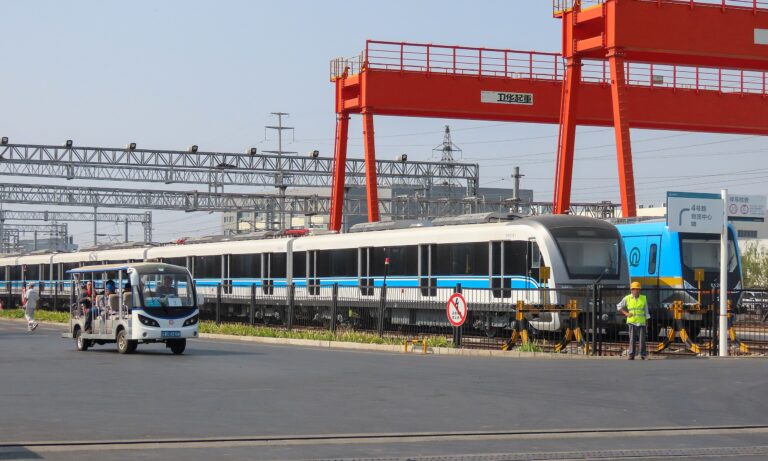Montenegro’s Chinese-built Highway as its Path to Europe

This article is part of a series of articles authored by young, aspiring China scholars under the Future CHOICE initiative.
The priority section of Montenegro’s first-ever highway opened last month after seven years of construction and multiple delays. Beyond being the most important infrastructural project in Montenegro to date, it has become a substantial factor in Montenegro’s foreign policy and internal identity politics.
Leaving China Out
Coinciding with Montenegro’s Statehood Day, the Chinese-built Smokovac-Mateševo highway section was ceremoniously opened on July 13. The only woman to deliver a speech on the occasion was the Chinese charge d’affaires ad interim, Hua Yafang. Her address, heavy on the symbolism of Montenegro-China relations, called the project “a highway of friendship.”
Yet, her three male Montenegrin counterparts did not mention China at all. The first speech was delivered by Milan Ljiljanić, the CEO of Monteput, a company that oversees highway maintenance. Then, after Hua Yafang, followed the speeches of the Vice-Prime Minister, Ervin Ibrahimović, and Prime Minister, Dritan Abazović.
Hua focused on praising the contractor, China Road and Bridge Corporation (CRBC). She emphasized CRBC’s success building on difficult terrain and amidst a global pandemic, as well as their “selfless” assistance and donations to local communities. Her polite defensiveness of the CRBC and its personnel, some of whom were in the audience, was likely a response to Montenegro’s continuous criticism of and the 2021 lawsuit against the company.
From the Montenegrin side, Ljiljanić and Ibrahimović thanked the CRBC for their work, but the Prime Minister did not even do that. He instead vaguely expressed gratitude to all people who worked on the project and then framed the opening of the highway as Montenegro’s physical reconnection with Europe. Or, as he put it, Montenegro’s reconnection “with a family of people that we truly belong to.”
In fact, Hua was the only one talking about the highway as a success story of Montenegro-China bilateral relations, i.e. how it was conceptualized until 2020 by Beijing and Podgorica, during the rule of the Montenegrin Democratic Party of Socialists (DPS). Judging by the words of the current Montenegrin leadership, however, one might assume the opposite: namely that the highway is solely a matter of European integration, with China an irrelevant part of the equation.
A Highway to Europe
In that vein, Vice-Prime Minister Ibrahimović explained, through an amusing metaphor, how this highway is really a road to “a full-fledged [EU] membership,” cautioning that “driving by the rules of that road and respecting the road signs” is imperative in Montenegro’s quest to join the EU. He even explicitly warned against “intentionally entering the opposite direction, stopping at the highway, or getting off to use the macadam roads.”
Prime Minister Abazović was no less poetic and metaphorical. He called the highway “a beginning of a permanent connection of Montenegro with the world” and an “opening [of] not just a road, but a [new] perspective.” Recalling Montenegro’s 1941 Antifascist Uprising, commemorated on the Statehood Day, he also said that with “important lessons of the past, we look towards the European future of our country” and that “the European Union is incomplete without Montenegro.”
Overlooking the fact that Europe is used interchangeably with the EU (thereby bringing into question Montenegro’s European-ness, to begin with), the logic of their arguments is entertaining given that the Smokovac-Mateševo section – built by and funded through a loan from China – connects merely two areas within Montenegro itself. Moreover, when the entire highway is finished, it will connect the country with its non-EU neighbor, Serbia. Thus, Podgorica will remain dependent on Belgrade to develop its Miloš the Great Motorway further Southward to link to the EU countries for years to come.
The framing of this project by the leading government representatives is, however, part of the broader political pattern that arose in the immediate aftermath of the Yugoslav wars. Political campaigns have been since built on the promise of modernization and democratization via the so-called “European path.” This collective aspiration, wrapped in spatial rhetoric, has effectively become an ideological quest to Europeanize. Therefore, for the Montenegrin leadership to label any developmental step forward – which this highway certainly is – as a steppingstone in the country’s overall Europeanization, i.e. modernization process, was inevitable.
Domestic Politics of the Highway
Apart from the broader political and identity implications, this highway section is at the center of internal political bickering too. Despite being envisaged and set into motion by DPS and the country’s President, Milo Đukanović, at the inauguration ceremony, their role was mostly ignored. Đukanović was not even invited to address the audience. He was, however, called to the podium to jointly press the red button that symbolically opened the highway section. The Mayor of Podgorica and Vice-President of DPS, Ivan Vuković, expressed dismay over the lack of credit given to DPS. He tweeted that he would skip the opening ceremonies of this and one other infrastructural project, sarcastically citing digestive issues as the reason.
While DPS may find the current government’s actions indigestible, the feeling is likely mutual. In June, Abazović expressed concern “that someone may be sabotaging” his efforts to have the highway ready to open on Statehood Day and during his first 100 days in office, which was widely believed as a jab at DPS.
The tensions between the country’s president and prime minister culminated soon after the highway opened when Montenegro signed the so-called Fundamental Agreement with the Serbian Orthodox Church. DPS then put forward a no-confidence vote, which, if successful, will lead the country to early elections.
Such internal bickering and potential elections are of relevance to China, which retains close contact with DPS. Before his departure, the former Chinese Ambassador to Montenegro, Liu Jin, made only two official farewell visits: one with President Đukanović and one with the current Foreign Minister, Ranko Krivokapić, notably shunning Prime Minister Abazović. Moreover, in the past two years, Đukanović reiterated Montenegro’s interest in “stronger cooperation” with China and even had a call with the Chinese President, Xi Jinping. Recently, China Radio International in Croatia also published an interview with the former Foreign Minister under DPS rule, Miodrag Vlahović. The article cites Vlahović saying that Montenegro’s “strategic Euro-Atlantic orientation” is “not one-dimensional,” and close Montenegro-China ties are “in Montenegro’s best interest.”
In contrast, since its formation in late April this year, Abazović’s government has been trying to steer clear of China and secure the building of the remaining highway sections through the EU and European Bank for Reconstruction and Development’s support. This decision is not simply a result of disillusion with CRBC, but also conditioned by the ongoing Russian invasion of Ukraine and the Taiwan strait crisis, making cooperation with Beijing increasingly politically sensitive.
While there is never a dull moment in Montenegrin politics, the upcoming no-confidence vote, and potential political shift may influence relations with China significantly. If DPS returns to power, it can be expected that the Montenegrin highway will be reframed once again not just as a symbol of the country’s European integration, but also Montenegro-China relations. The rest is yet to be seen.
Written by
Jovana Bogojević
Jovana Bogojević is a doctoral candidate in Asian and Transcultural Studies in a joint Ph.D. program of the Ca’ Foscari University of Venice (Italy) and Heidelberg Universität (Germany). Her research project focuses on the Yugoslav perceptions of and political actions towards four East Asian countries (China, Japan, North Korea, and Mongolia) in the early Cold War era. Jovana was formerly a Yenching Scholar at Peking University and is a trained musician.


